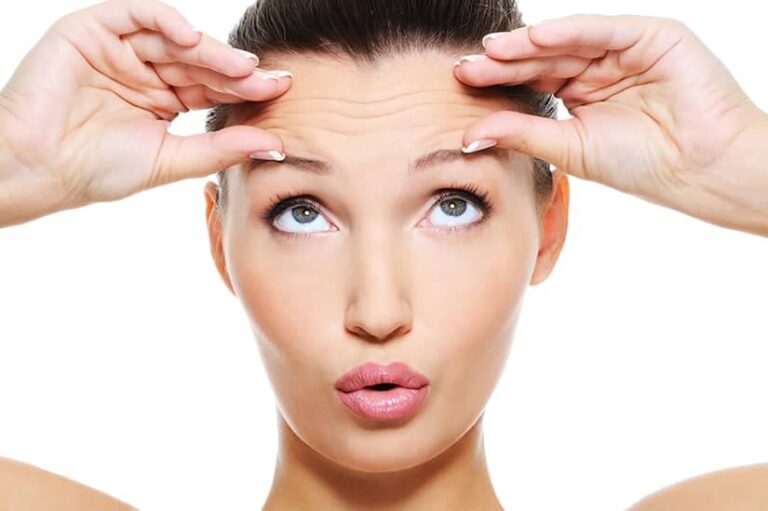
Many people associate hormonal fluctuations with women and teens, but these chemical messengers go up and down in all walks of life—male and female, as well as young and old. It is important for skin care professionals to be knowledgeable about hormones for a number of reasons. Being able to associate hormonal fluctuations with the phases of life helps them address certain skin changes regarding oil, hydration and loss of skin elasticity. Of course, if hormonal fluctuations are not tied to life’s phases, being knowledgeable of the more common hormonal disorders helps skin care professionals guide clients to achieving skin care goals.
T3 and T4
The thyroid is part of the endocrine system, which is made up of glands that produce, store and release hormones into the bloodstream so the hormones can reach the body’s cells. This gland utilizes the iodine in foods to produce two main hormones, triiodothyronine (T3) and thyroxine (T4). These two hormones affect the body’s metabolism, temperature, blood, heart, and nervous system, which can have an effect on the skin.
Effects on skin.
Usually when this hormone is off, a physician will prescribe a drug that will attempt to bring the level back to normal. Too little thyroid hormones can cause the skin to become more dry, cool, pale, and brittle. When a person has dry skin, they become more susceptible to inflammation and eczema. Too much thyroid hormone can lead to warm, moist and sometimes rash-prone skin. Some more extreme cases of hyperthyroid may have Graves’ disease, which may cause vitiligo, a condition characterized by irregularly shaped white patches on the skin resulting from the destruction of pigment cells.
Estrogen
This is another hormone that can affect the skin in a variety of ways when levels are varied. Estrogen is naturally produced in the bodies of both men and women. Its main role in the body is to help manage the reproductive system as well as help skin heal from bruises and protect the bones.
Effects on skin.
As the body ages, the levels of estrogen decline and the skin can become more fragile, dry, and loose. Loss of estrogen is a major cause of sagging, dry skin in women over 40. When estrogen levels are on the high end of spectrum, melasma (most common in pregnant women) can occur or even may cause premenstrual symptoms to be more severe. If a person’s estrogen is not being metabolized in a normal manner, it can lead to a variety of cancers, including breast cancer. Estrogen can also signal sub-hormones to cause overgrowth of tissue that causes endometriosis. This disease affects up to 10% of women, which can cause painful and heavy menstrual cycles as well as issues with infertility. Endometriosis can cause side effects in skin, including more oil and easily hyperpigmented conditions.
Testosterone
This is a hormone that is responsible for many of the physical characteristics specific to adult males. It is one of the principal androgen hormones, and it plays a key role in reproduction and the maintenance of bone and muscle strength. It is also a hormone that is present in females but predominately at much lower levels. Testosterone can affect the skin in many ways, both for men and women.
Effects on skin.
For men, it can help to thicken the tissue surrounding the dermal and epidermal layers. The thicker tissues may promote more collagen production and more elasticity. Obviously, it helps in building larger muscles. Men also tend to have larger pores than women, as testosterone motivates the sebaceous glands to produce more sebum, which makes the skin supple. Too much testosterone in men can lead to acne. The testosterone hormone in men also promotes hair growth all over the body, especially in the facial area. The hair offers a protection for the skin. When there is hair growth as well as normal sebaceous glands for a man, there also tends to be fewer wrinkles. In contrast, men experience hair loss when testosterone levels are low.
Women can have issues with testosterone as well and should have those levels checked. When testosterone is too low, skin loses elasticity and tone and becomes drier, whereas high levels can cause the sebaceous glands to overproduce sebum and lead to cystic acne. The skin can become more sensitive in nature. Increased levels of testosterone in women may also lead to more facial hair.
Get Hormone Checks
Hormonal issues can happen to both men and women. issues with your skin that you suspect could be associated with hormonal fluctuations, get your hormones checked. Restoration MedSpa can help bio-identical hormone treatments.
Call us for your complimentary consultation today.
Request A Complimentary Consultation
Fill out the form below and a concierge will call to schedule an appointment!



